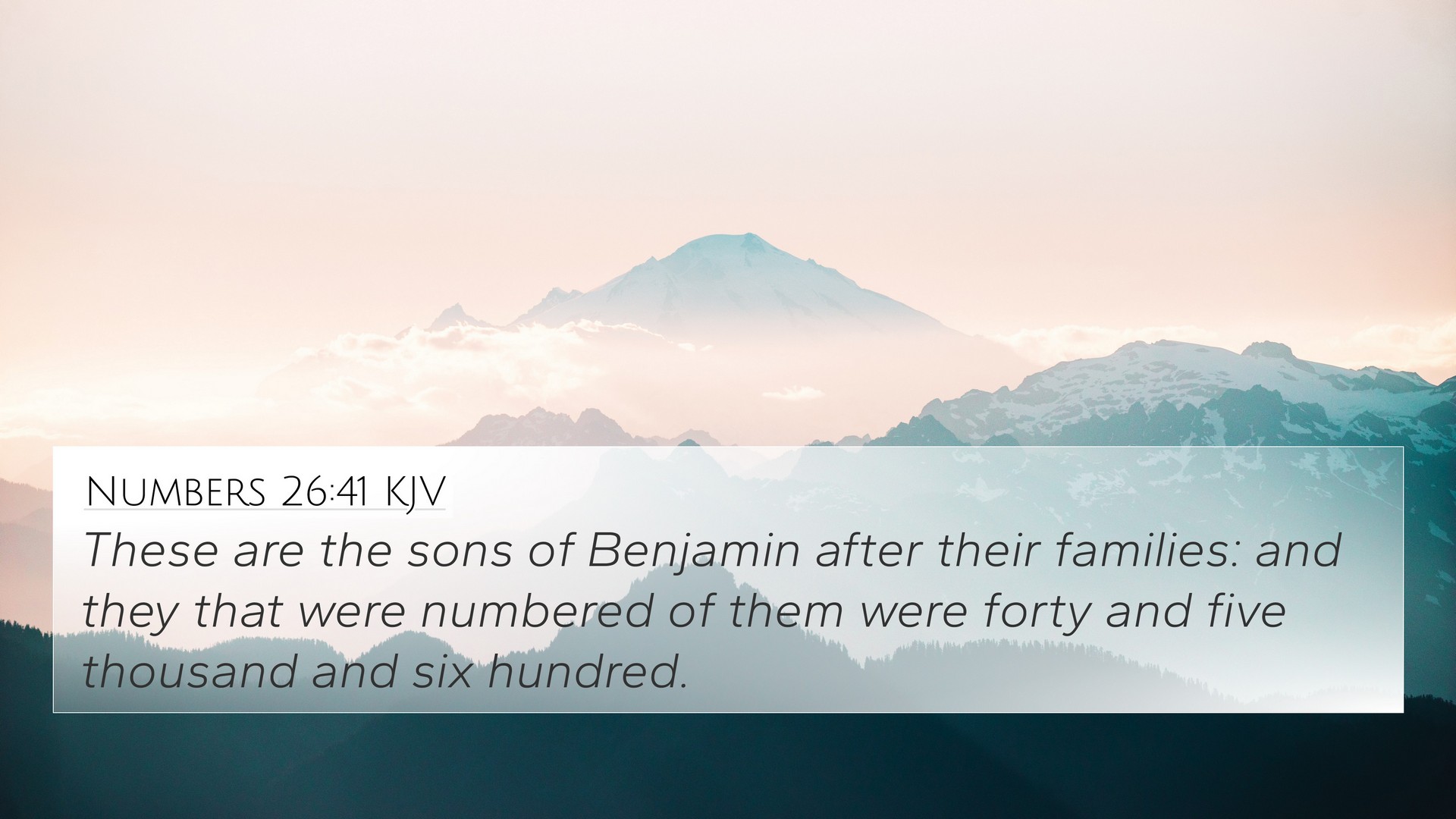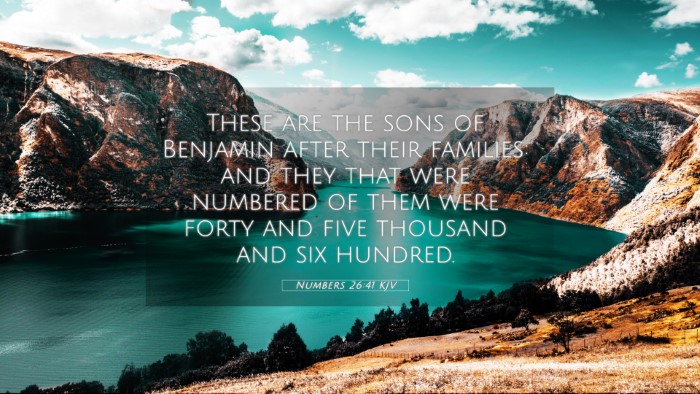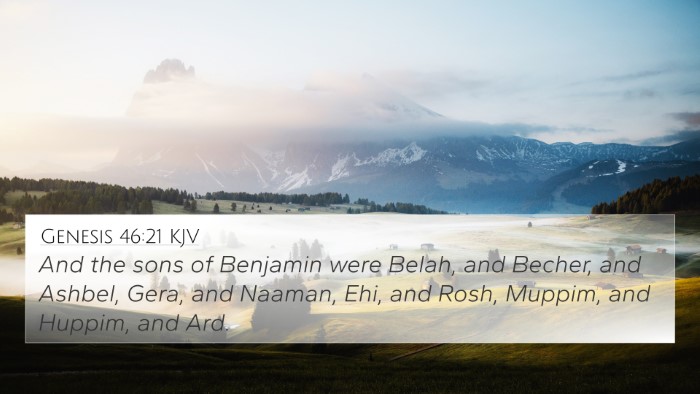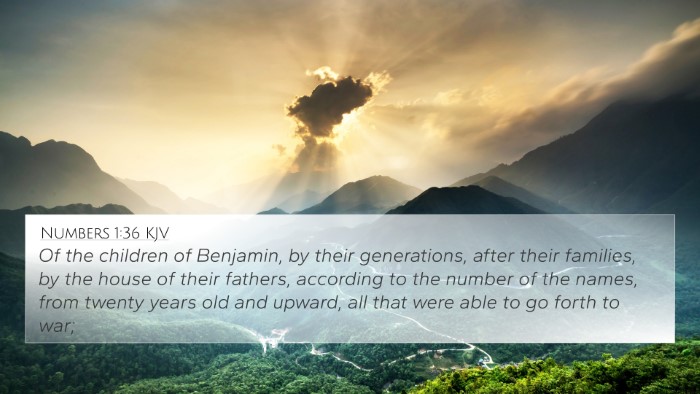Understanding Numbers 26:41
Overview:
Numbers 26:41 states, "These are the children of Benjamin after their families: and they that were numbered of them were forty and five thousand and six hundred." This verse forms part of the census that God commanded Moses to take of the Israelites, highlighting the descendants of Benjamin and their significant population within the Israelite community.
Commentary Insights
Matthew Henry's Commentary
Matthew Henry, in his commentary, emphasizes the organized nature of the Israelite tribes and their families, presenting God’s providence in maintaining the lineage of His chosen people. The mention of Benjamin, being the youngest son of Jacob, symbolizes not only growth but the faithfulness of God in fulfilling His promises regarding the descendants of the patriarchs. The specific number indicates the strength and importance of this tribe within Israel.
Albert Barnes' Notes
Albert Barnes points out that Benjamin’s descendants represent more than mere numbers; they are a faithful remnant destined for significant roles in Israel's narrative. The census reflects God's faithfulness and the fulfillment of His covenant to Abraham, Isaac, and Jacob, ensuring that each tribe would flourish. In his analysis, Barnes connects this tribe's listing to the strategic positioning in battles and the inheritance of land during the conquest of Canaan.
Adam Clarke's Commentary
Adam Clarke provides a careful examination of the cultural significance of the census. He explains how the tribe of Benjamin was known for their valor and skill, crucial in the military context of Israel. Clarke also mentions how this census was not solely about counting people but delineating responsibilities and roles within the community, highlighting biblical themes of order and divine guidance in the midst of their journey.
Thematic Connections
This verse, while straightforward in its content, leads to deeper themes within scripture. Below are some significant themes and connections:
- The Heritage of the Tribes: Benjamin's lineage is critical in understanding the historical context of Israel's people.
- God's Promises: The growth of Benjamin’s tribe signifies God's covenant with Israel, suggesting continuity and preservation despite adversities.
- Military and Leadership Role: Benjamin's descendants became known for their warriors, setting a precedent for leadership in battle situations.
- God's Order: The structured listing of tribes reaffirms God’s call for order among His people.
Cross-References
Numbers 26:41 is interwoven with several scripture references that establish thematic and narrative connections. Below are notable cross-references:
- Genesis 49:27 - Jacob's blessing on Benjamin, depicting him as a ravenous wolf, which foreshadows his character.
- Deuteronomy 33:12 - Moses blesses Benjamin, declaring him favored and secure, giving insight into his tribe's future.
- Judges 20:15 - Highlights the valiant men of Benjamin during the conflict with Israel, showcasing their combat skills.
- 1 Samuel 9:1 - Introduces Saul, a prominent Benjaminite, illustrating the tribe’s significance in Israel’s monarchy.
- 1 Chronicles 8:1-10 - A genealogical account of Benjamin, emphasizing heritage and lineage relevance.
- Romans 11:1 - Paul’s declaration of being an Israelite of the tribe of Benjamin, connecting New Testament themes of identity.
- Acts 13:21 - Refers to the establishment of Saul as king from the tribe of Benjamin, marking an important historical narrative.
Conclusion
Numbers 26:41 serves as a reminder of God's sustaining hand upon the tribes of Israel, showcasing His faithfulness and the organization of His people. By studying this verse within the broader context of biblical teachings and understanding its connections through cross-references, believers are equipped to appreciate the intricate tapestry of scripture and God's ongoing plan for His creation.





